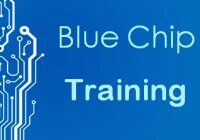 Overview
Overview
TensorFlow Lite for Microcontrollers is a port of TensorFlow Lite designed to run machine learning models on microcontrollers and other devices with limited memory.
This instructor-led, live training (online or onsite) is aimed at engineers who wish to write, load and run machine learning models on very small embedded devices.
By the end of this training, participants will be able to:
- Install TensorFlow Lite.
- Load machine learning models onto an embedded device to enable it to detect speech, classify images, etc.
- Add AI to hardware devices without relying on network connectivity.
Format of the Course
- Interactive lecture and discussion.
- Lots of exercises and practice.
- Hands-on implementation in a live-lab environment.
Course Customization Options
- To request a customized training for this course, please contact us to arrange.
Requirements
- C or C++ programming experience
- A basic understanding of Python
- A general understanding of embedded systems
Audience
- Developers
- Programmers
- Data scientists with an interest in embedded systems development
Course Outline
Introduction
- Microcontroller vs Microprocessor
- Microcontrollers designed for machine learning tasks
Overview of TensorFlow Lite Features
- On-device machine learning inference
- Solving network latency
- Solving power constraints
- Preserving privacy
Constraints of a Microcontroller
- Energy consumption and size
- Processing power, memory, and storage
- Limited operations
Getting Started
- Preparing the development environment
- Running a simple Hello World on the Microcontroller
Creating an Audio Detection System
- Obtaining a TensorFlow Model
- Converting the Model to a TensorFlow Lite FlatBuffer
Serializing the Code
- Converting the FlatBuffer to a C byte array
Working with Microcontroller’ss C++ Libraries
- Coding the microcontroller
- Collecting data
- Running inference on the controller
Verifying the Results
- Running a unit test to see the end-to-end workflow
Creating an Image Detection System
- Classifying physical objects from image data
- Creating TensorFlow model from scratch
Deploying an AI-enabled Device
- Running inference on a microcontroller in the field
Troubleshooting
Summary and Conclusion
